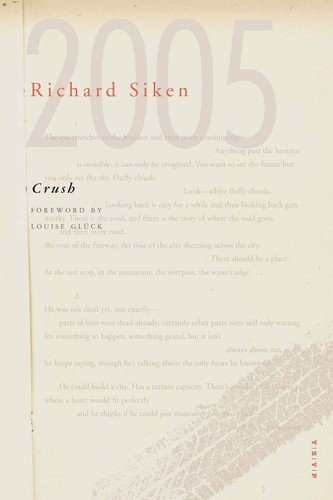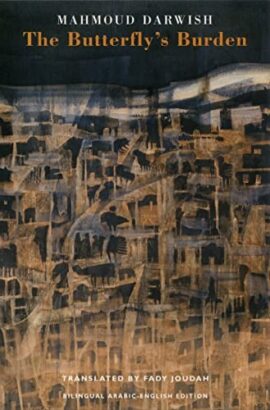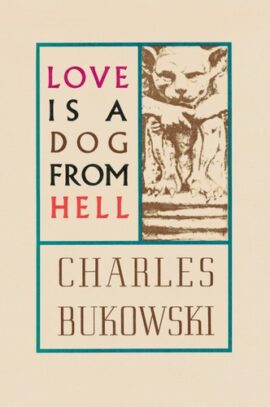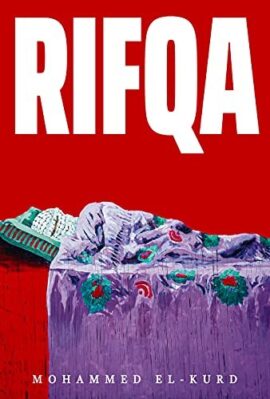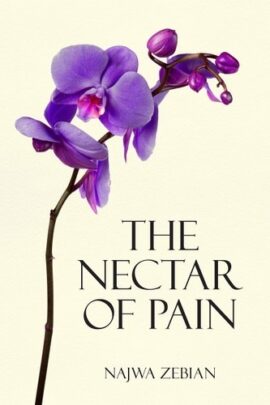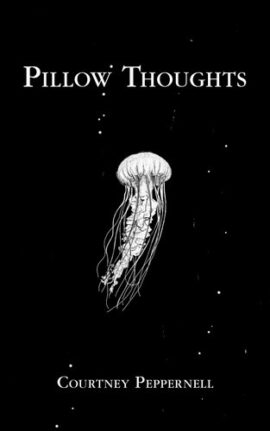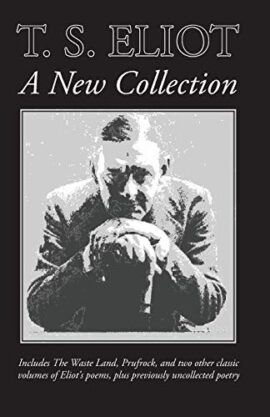Crush
4.800,00 د.ج
Finalist for the 2005 National Book Critics Circle Award in Poetry—an erotic, powerful collection
“One of the best books of contemporary poetry.”—Victoria Chang, Huffington Post
“Vital, immediate, and cinematic in scope.”—Library Journal (Best Poetry of 2005)
Selected by Nobel Prize laureate and competition judge Louise Glück as the 2004 winner of the Yale Younger Poets prize, Richard Siken’s Crush is a powerful collection of poems driven by obsession and love. Siken writes with ferocity, and his reader hurtles unstoppably with him. His poetry is confessional, gay, savage, and charged with violent eroticism. In the world of American poetry, Siken’s voice is striking.
In her introduction to the book, Glück hails the “cumulative, driving, apocalyptic power, [and] purgatorial recklessness” of Siken’s poems. She notes, “Books of this kind dream big. . . . They restore to poetry that sense of crucial moment and crucial utterance which may indeed be the great genius of the form.”
Finalist for the 2005 National Book Critics Circle Award in Poetry—an erotic, powerful collection
“One of the best books of contemporary poetry.”—Victoria Chang, Huffington Post
“Vital, immediate, and cinematic in scope.”—Library Journal (Best Poetry of 2005)
Selected by Nobel Prize laureate and competition judge Louise Glück as the 2004 winner of the Yale Younger Poets prize, Richard Siken’s Crush is a powerful collection of poems driven by obsession and love. Siken writes with ferocity, and his reader hurtles unstoppably with him. His poetry is confessional, gay, savage, and charged with violent eroticism. In the world of American poetry, Siken’s voice is striking.
In her introduction to the book, Glück hails the “cumulative, driving, apocalyptic power, [and] purgatorial recklessness” of Siken’s poems. She notes, “Books of this kind dream big. . . . They restore to poetry that sense of crucial moment and crucial utterance which may indeed be the great genius of the form.”
| Editeur |
|---|
Produits similaires
The Butterfly’s Burden
Love Is a Dog from Hell
A book that captures the Dirty Old Man of American letters at his fiercest and most vulnerable, on a subject that hits home with all of us. Charles Bukowski was a man of intense emotions, someone an editor once called a “passionate madman.” Alternating between tough and gentle, sensitive and gritty, Bukowski lays bare the myriad facets of love—its selfishness and its narcissism, its randomness, its mystery and its misery, and, ultimately, its true joyfulness, endurance, and redemptive power.
"there is a loneliness in this world so great
that you can see it in the slow movement of
the hands of a clock."
Rifqa
Home Body
i dive into the well of my body
and end up in another world
everything i need
already exists in me
there’s no need
to look anywhere else
– home
The Nectar of Pain
In The Nectar of Pain, Zebian sheds light on the feelings and experiences that emerge from a painful heartbreak. She writes that the process of cleansing oneself of that pain—day by day, hour by hour, and second by second—is the real work of healing.
With uncommon warmth and wisdom, Zebian empowers all who have lost to let go of anger and transform their suffering into the softness, sweetness, and beauty of nectar. She holds her readers by the hand as they heal.
Pillow Thoughts
T. S. Eliot: A New Collection
The Poet X – WINNER OF THE CILIP CARNEGIE MEDAL 2019
Xiomara Batista feels unheard and unable to hide in her Harlem neighborhood. Ever since her body grew into curves, she has learned to let her fists and her fierceness do the talking.
But Xiomara has plenty she wants to say, and she pours all her frustration and passion onto the pages of a leather notebook, reciting the words to herself like prayers—especially after she catches feelings for a boy in her bio class named Aman, who her family can never know about.
With Mami’s determination to force her daughter to obey the laws of the church, Xiomara understands that her thoughts are best kept to herself. So when she is invited to join her school’s slam poetry club, she doesn’t know how she could ever attend without her mami finding out. But she still can’t stop thinking about performing her poems.
Because in the face of a world that may not want to hear her, Xiomara refuses to be silent.

